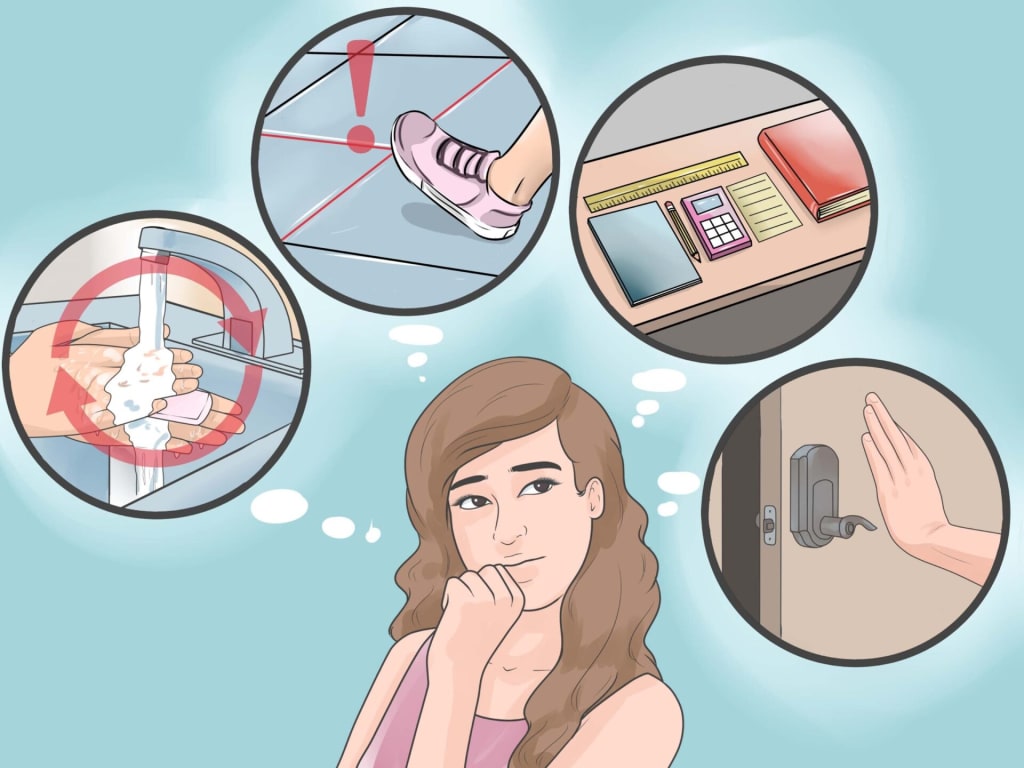What Causes OCD and How to Identify Possible Triggers
What Causes OCD and How to Identify Possible Triggers

Obsessive-Compulsive Disorder (OCD) is a mental health condition that affects millions of people around the world. It is characterized by unwanted, intrusive thoughts, images, or impulses (obsessions) that cause significant anxiety and distress, and repetitive behaviors or mental acts (compulsions) that are performed in an attempt to reduce the anxiety or prevent harm. OCD can be a debilitating condition that interferes with daily functioning, relationships, and quality of life.
While the exact cause of OCD is not known, research has shown that it is likely due to a combination of genetic, neurological, and environmental factors. In this article, we will explore what causes OCD and how to identify possible triggers.
Genetic Factors
Studies have shown that OCD can run in families, suggesting a genetic component. According to the International OCD Foundation, individuals with first-degree relatives (parents, siblings, or children) who have OCD are at a higher risk of developing the disorder themselves. Researchers have identified specific genes that may be associated with OCD, although the exact role these genes play in the development of the disorder is still unclear.
Neurological Factors
Neuroimaging studies have identified differences in the brain structure and functioning of individuals with OCD compared to those without the disorder. Specifically, there are differences in the areas of the brain that are responsible for processing emotions and regulating behavior. Abnormalities in the neurotransmitter serotonin have also been linked to OCD. Serotonin is a chemical in the brain that helps regulate mood and behavior, and medications that increase serotonin levels (such as selective serotonin reuptake inhibitors or SSRIs) are often used to treat OCD.
Environmental Factors
While genetics and neurobiology play a significant role in the development of OCD, environmental factors can also trigger or exacerbate the disorder. Traumatic events, such as abuse, neglect, or loss, can trigger the onset of OCD symptoms in some individuals. Stressful life events, such as divorce, job loss, or illness, can also trigger OCD symptoms or make existing symptoms worse. In addition, certain infections or medical conditions have been linked to the development of OCD, although the exact mechanisms are not fully understood.
Identifying Possible Triggers
If you or someone you know is experiencing symptoms of OCD, it is important to seek help from a qualified mental health professional. A therapist or psychiatrist can help diagnose the disorder and develop a treatment plan tailored to the individual's specific needs.
In addition to seeking professional help, it can be helpful to identify possible triggers for OCD symptoms. Keeping a journal or log of when symptoms occur and what was happening at the time can help identify patterns or triggers. Some common triggers for OCD symptoms include:
Stressful life events: As mentioned earlier, stressful life events can trigger or exacerbate OCD symptoms. Keeping track of major life events and how they affect symptoms can help individuals anticipate and prepare for potential triggers.
Specific triggers: Some individuals with OCD have specific triggers, such as contamination or symmetry. Keeping track of when these triggers occur and what was happening at the time can help individuals identify situations to avoid or plan for.
Lack of sleep or poor nutrition: Sleep and nutrition play a significant role in overall health, and can also affect mental health. Individuals with OCD may find that symptoms are worse when they are not getting enough sleep or eating a balanced diet. Keeping track of sleep and eating habits can help identify patterns and make adjustments as needed.
Compulsive behaviors: Compulsive behaviors, such as checking or counting, can actually reinforce OCD symptoms. Keeping track of when these behaviors occur and what triggers them can help individuals identify alternative coping strategies.
Treatment for OCD typically involves a combination of medication and therapy. SSRIs are often used to help regulate serotonin levels and reduce symptoms of anxiety and depression that often co-oc with OCD. Therapy, specifically Cognitive Behavioral Therapy (CBT), is also an effective treatment for OCD. CBT helps individuals identify and challenge negative thought patterns and beliefs, and learn new coping strategies to manage symptoms.
In India, there are several options available for individuals seeking treatment for OCD. Traditional face-to-face therapy is available in many cities and towns, and there are also online therapy options available. Online therapy is a convenient and accessible option for individuals who may not have access to in-person therapy, or who prefer the flexibility of online sessions.





Comments
There are no comments for this story
Be the first to respond and start the conversation.